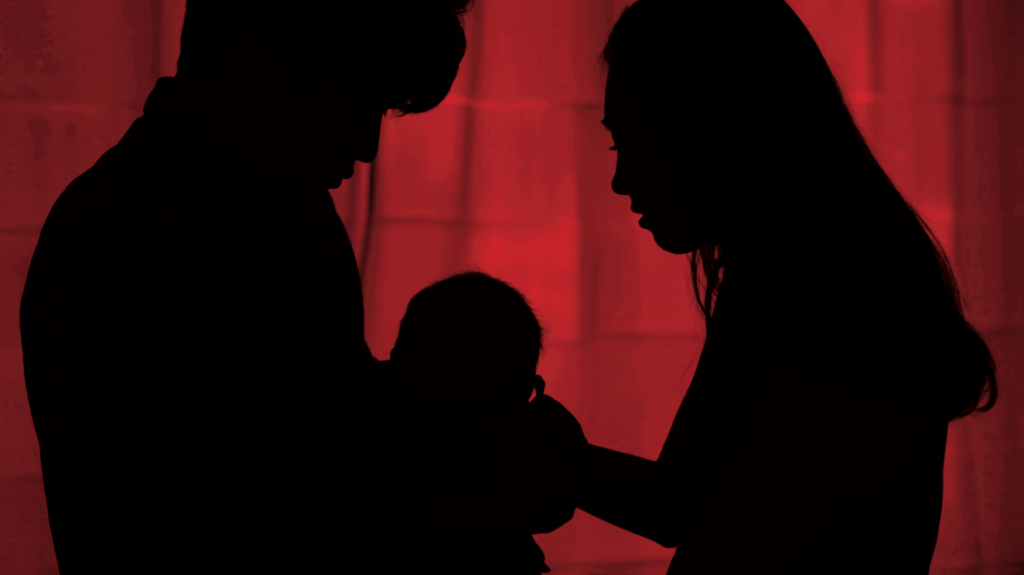by HAEIN JUNG
In 2010, the story of a South Korean couple who let their 3-month-old baby wither and die from starvation made headlines around the world. The twisted irony behind it was that while these parents were neglecting their child, they were raising a virtual baby via the online fantasy role-playing game, Prius. They would spend more than 10 hours a night at PC bangs (24-hour Internet cafés) that litter the streets of South Korea. They’d sporadically feed their real-life baby, Sarang, when they’d return home from binge gaming sessions in the early morning.
The couple eventually went to trial for negligent homicide, but the father, Kim Jae-Beom, ended up serving only a year in prison, while his wife, Kim Yun-jeon, was placed on probation. In South Korea’s Criminal Code, there is a faulty loophole. It reduces sentencing for those under physical or mental impairment stemming from addiction to alcohol or drugs—in this case, gaming.
Four years later, HBO aired Love Child, a documentary by Valerie Veatch that aims to raise a dialogue on how technology has permeated our society. More than a stoning of Sarang’s parents, the film is a reflection of society at large. She urges viewers to look at our own technology use, how it shapes us, and where this is all heading. “The story seems so cut and dry,” Veatch says. “You can’t, on one level, argue about it. But the story is complex. Telling it and further creating complexities around the moral anchors of it was an interesting process.”
Veatch has a fascination with the psychological and sociological side effects of technology—in 2012, she co-directed the documentary “Me @ the Zoo,” which steps into the world of internet celebrity Chris Crocker of “Leave Britney Alone” fame. She learned about the case of the Kims in 2010, and couldn’t stop thinking about it. “Telling that story would allow me to explore a lot of things that I like to think about in terms of how technology impacts society,” Veatch says. “In making ‘Me @ the Zoo, I realized that Chris Crocker was dragging this mechanized social media that was driven by ads and an ever-increasingly sophisticated network of industries that supported social media. These platforms are demonized. Then these smart phones came out and all of a sudden everyone’s on Grindr all day long. I was like, ‘What is this?’ How are we using these devices?”
Although Internet addiction is not yet listed in the Diagnostic and Statistical Manual of Mental Disorders, Love Child shows that people in South Korea are currently able to seek treatment for their gaming addictions. The South Korean government offers treatment at roughly 200 counseling centers and hospitals, and has trained more than 1,000 internet addiction counselors.
In the documentary, reality is interspersed with hyper-reality. There are interviews with the couple’s defense attorney, the main detective and journalist Andrew Salmon, who followed the case from the start, along with shots of daily life in South Korea—a delivery motorcycle revving its engine as it speeds through moonlit highways, a knife slicing into a watermelon. Then, dispersed throughout the film, are scenes of seemingly alternate world—cotton candy colored skies, an animated baby in a womb, along with several excerpts of the game, Prius.
Veatch believes we’re in the middle of a technological transition, one that’s happening first in Korea. “There are people who are actively studying and thinking in a really deep way about how all of this functions in society,” she says.
The film was screened for Korean audiences. “I was thinking ‘What’s going to happen?'” Veatch says. “But it was amazing. All the young kids were like, ‘Thank you for making this film. You don’t judge it.’ They’re all going to school to create the third generation of the technology we’re watching. So they’re seeing this as a beginning of a conversation. How do we build a better world for technology?”
For the filmmaker, the story affected her in a profound way. “I’ve been trying to be detached but then you can’t be,” she says. “You become deeply intertwined with what you’re doing. It was a dark story to carry. I reflected on why I am telling this story. Is it going to rub people the wrong way? Am I taking something that happened and pointing at it and being awkward?” In the end, she says, she made the film in memory of Sarang. “It’s just acknowledging it’s spirit,” Veatch says. “Putting in layers of the game really helped. It just sort of showed how this is a universal story of our time.”
The couple has weaned off of gaming and is now raising their second child, named Autumn.
The documentary will be airing on HBO throughout August.
Image via Love Child







